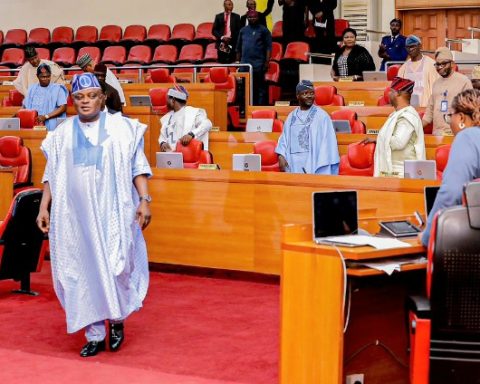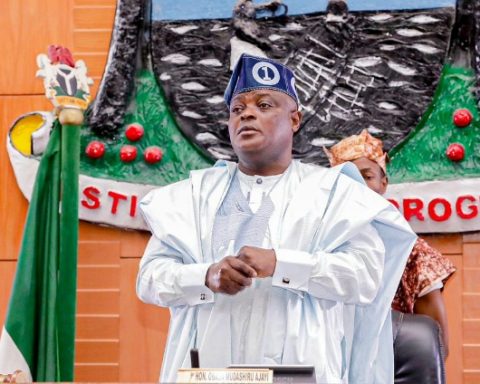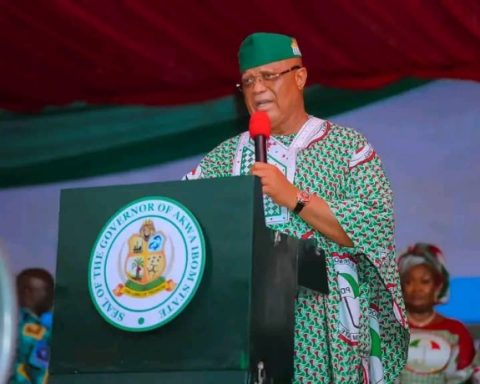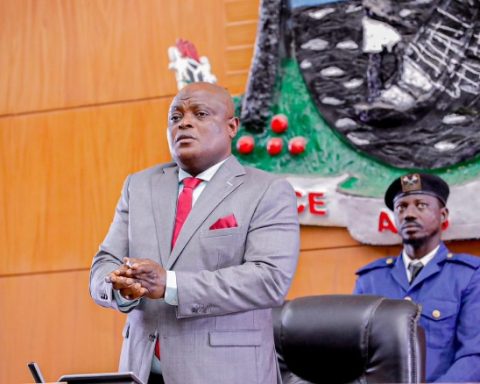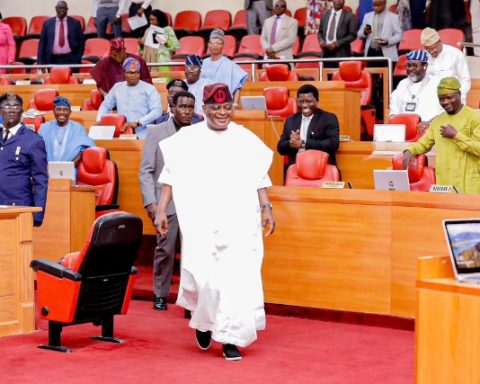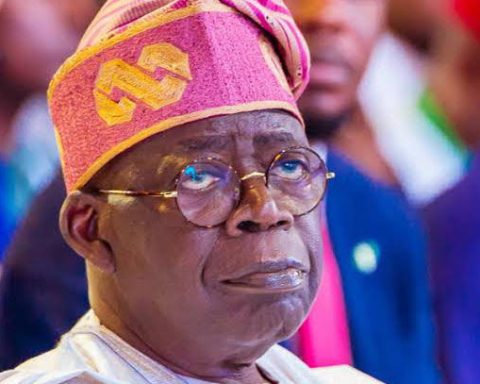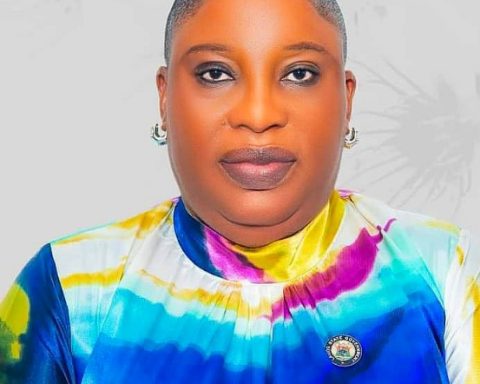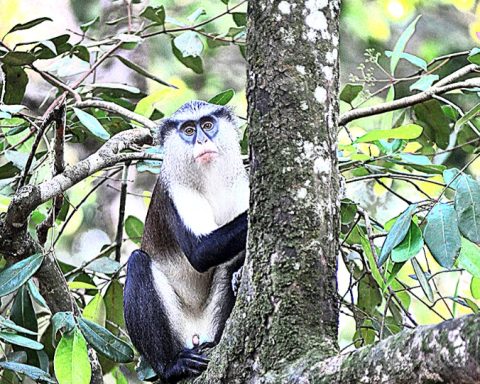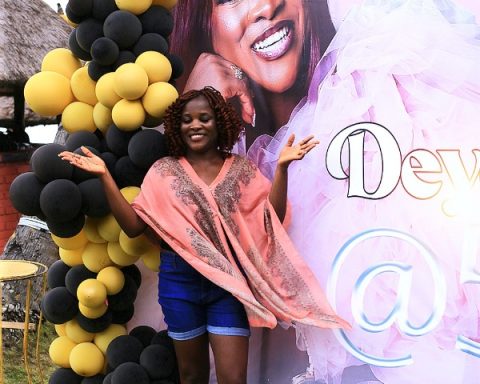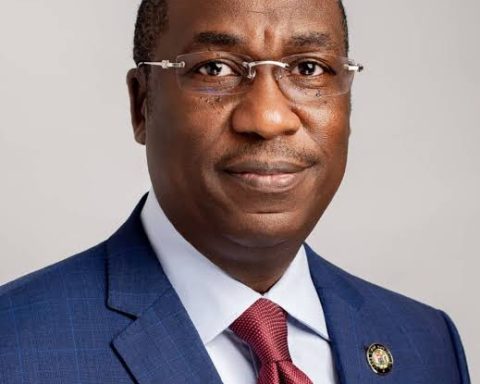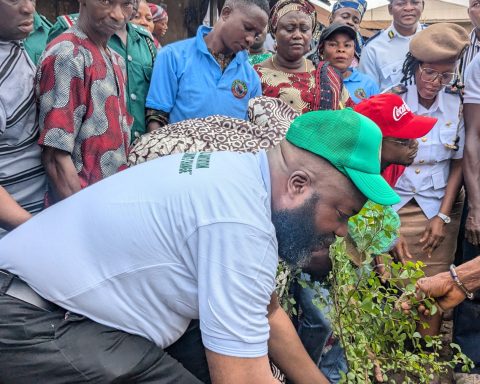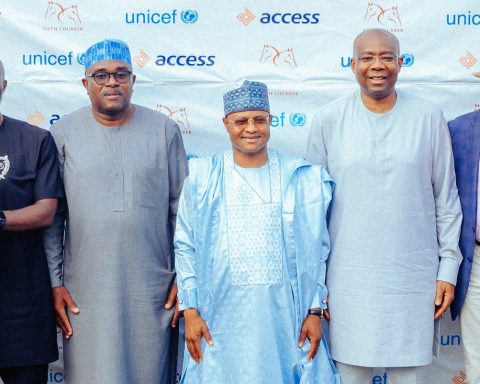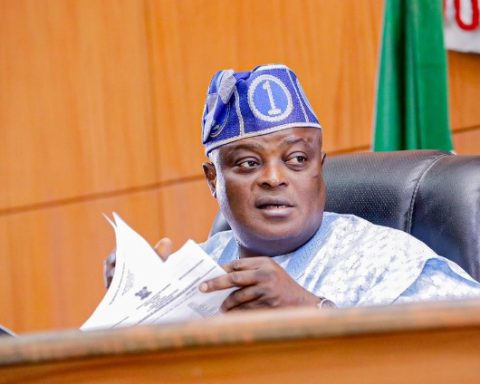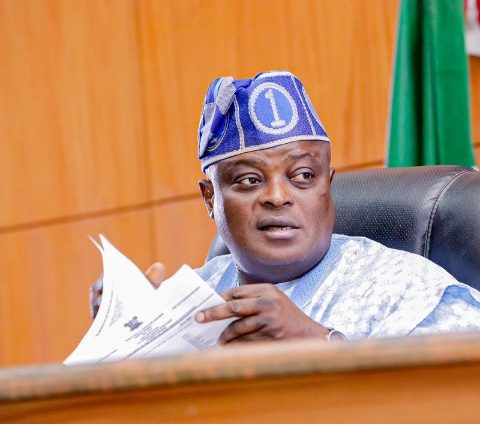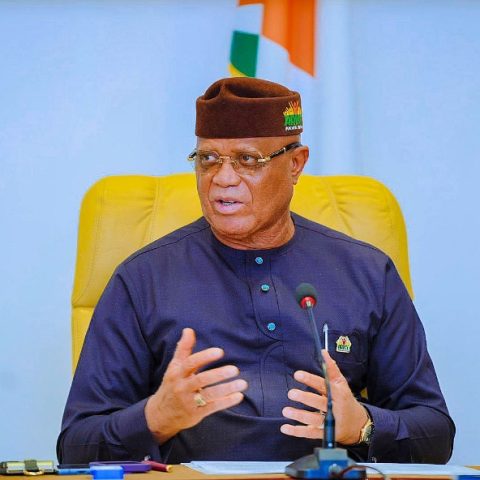
Tourism Icon, Otunba Olawanle Akinboboye has announced ‘Ojude Oba’ as his tourism product for week 36. He said, he observed that, the social media has been awashed with stories of a cultural festival held recently in Ijebu – Ode and the said festival appears to have awoken the cultural consciousness of Nigerians of all ages and classes. It has also identified the man of the moment based on his gorgeous attire and interesting backstory that involved overcoming a serious ailment.
Nigerians appear to be astounded and delighted by the sights and sounds of this festival, the colourful and majestic Aso – oke on display and the feeling of pride it has generated about our culture. He therefore has decided that his Tourism Product of the Week No 36 should be this festival: ‘Ojude Oba’.
Otunba Akinboboye gave an insight into Ojude Oba, which is a Yoruba term that translates to the “king’s forecourt”. He noted that the festival occurs annually approximately three (3) days after the Eid El Kabir festivities.
He also noted that the festival celebrates some of the unique features of the Ijebus, such as their aesthetic taste in clothes, music, costumes, food and so on.
He then observed that the Ijebus speak their own dialect of Yoruba and have a unique cultural and institutional identity. Their paramount leader is the Awujale or king of Ijebuland, who provides spiritual lordship in its relationship with various districts.
The festival takes place in Ijebu Ode and the local age groups (regberegbe), indigenes, their friends, and associates from far and near throng the palace of the Awujale in a carnival-like celebration that has been celebrated for more than a century.
According to oral history, the festival began when Balogun Kuku, one of the leading personalities in the community, accepted Islam. He decided to gather his friends, families, and well-wishers to pay homage to the king for giving them the opportunity to practice their religion peacefully.

In another account, the festival was said to have started when Imam Tunwatoba led his friends and family members to pay homage to his friend, the then Awujale of Ijebuland, Oba Fidipote during the eid-l-adha festival. Imam Tunwatoba thanked the king for being instrumental to the freedom enjoyed by Muslims in the community to practice their faith in a peaceful atmosphere. They prayed for the monarch to enjoy a long life, good health, and for the progress and prosperity of Ijebuland. Since then, what began as a visit has grown in leaps and bounds to assume the status of an iconic cultural festival.
The glitz and glamour associated with the festival has led it to be ranked among the most celebrated cultural festivals in Nigeria. Ijebu sons and daughters, Muslim and non-Muslim, go to the Awujale’s palace, singing and dancing with the principal chiefs of the town and riding on horses to pay homage to the Awujale, no matter his religious affiliation. The Ajuwale sits on the throne throughout the length of the ceremony to receive his people. Different age groups in specially tailored dresses also dance around the town.
Although the festival began as a purely Muslim affair, it has over the years acquired new meaning, as it now embraces features of local traditions.
The Ojude Oba festival normally begins with prayers by the Imam of Ijebuland, followed by the National Anthem, Ogun State anthem and then the Ajuwale’s anthem. Then there is lineage praises.
After the anthems and praises, parades of the different age groups in the community, known as Regberegbe begins. The age grade societies were established in the 18th century. Wompari is the general name given to all the age grade societies. Some of the age grades are Egbe Bobagunte (1956-1958), Akile of Ijebu (1959-1961), Egbe Gbobaniyi (1962-1964), Mafowoku, Egbe Arobayo male and female, Egbe Jagunmolu (1965-1967), Egbe Bobakeye, and Egbe Bobagbimo. Each age grade, which embraces both men and women, during the course of the parade presents a special gift to the king.
Obviously, during this spectacle the rich cultural heritage of Ijebus is in full display and provides tourists with an opportunity to see and enjoy the culture of the host community.
Otunba Akinboboye spoke of other countries that had successfully leveraged off their cultural festivals to generate income from international tourists.
He noted that the Rio Carnival in Brazil was the most famous of the ‘Fat Tuesday’ carnivals held in the Americas and the Carribbean. He noted that, although the Brazilian Carnival began as an event celebrating the start of Lent in the Christian religion, it has evolved further to celebrate the history, culture, and traditions of the people of Brazil.
When anyone thinks of the Brazilian Carnival they think of the extravagant costumes, beautifully decorated floats and the scores of dancers, known as Samba schools, dancing the Samba, a Brazilian dance of African origin, with a basic pattern of step-close-step-close and characterized by a dip and spring upward at each beat of the music. This dance acknowledges that millions of African slaves were imported into Brazil during the trans- Atlantic slave trade and introduced aspects of their culture into their new homeland.
Otunba Akinboboye noted that attending the Rio Carnival was on the bucket list of many tourists. He then mentioned that in 2018, 6 million people attended the carnival of whom 1.5 million were international tourists. Attendance figures dipped as a result of COVID, but are starting to pick up again. He also mentioned that, according to statistics compiled by the Brazilian Agency for International Tourism Development, the 2024 Rio carnival added US$143.5 million (or N30.6 billion) to that country’s national economy.

New Orleans hosts a similar ‘Fat Tuesday’ festival that celebrates the beginning of Lent and which is known as Mardi Gras. Although similar to the Rio carnival as it involves costumes, floats, music, food and dance, the different culture of its people shines through.
Mardi Gras was first celebrated in what is now the United States on March 2, 1699. The holiday was established by French-Canadian explorer Jean Baptiste Le Moyne Sieur de Bienville when he departed France to plant a colony at the mouth of the Mississippi River. The carnival has a distinct French and African flavour with the music on offer including ‘zydeco’ that evolved from the French settlers and ‘jazz’ which emanated from the slaves transported to the Americas during the trans- Atlantic slave trade. The food available similarly has roots in France and West Africa.
A total of 250,000 people attended the 2024 edition of the New Orleans Mardi Gras and the event had an economic impact of US $19.6 million on the local economy.
Otunba Akinboboye firmly believes that Ojude Oba is a tourism product that can be successfully incorporated into Nigeria’s portfolio of tourism attractions.
He noted however that, as the date of the festival was unpredictable and determined by the sighting of the moon for the Eid, he would recommend that, in selling the event to international tourists, it is offered as part of a tour package that incorporates attendance at the festival alongside visits to historical and geographical attractions in the Ijebu axis that would include Sungbo Eredo which is a 100-mile-long wall and moat whose construction is believed to have began a millennium ago.

Otunba Akinboboye noted that, while the festival as currently constituted is wonderful, if Nigeria intends to make it a tourism destination for international and domestic tourists, it would need to build upon its attractions.
This would involve expanding on its offerings so that it could provide tourists with a multiplicity of things to see and engage in. This could include competitions, visual shows on various aspects of Ijebu culture, fashion shows that interwove European clothing with African fabrics and mini food festivals offering food and snacks indigenous to Ijebu.
Having a wide range of activities, albeit for a short term event, requires careful organization that would generate employment for periods longer than the actual time frame of the Festival.
Otunba Akinboboye said he had seen the State’s Commissioner of Tourism in the media speaking on the Festival and he was glad to see he and his Ministry was so supportive of the festival.
He emphasized that government needed to create an enabling environment for the Festival if it wants it to attain its full tourism potential. However it’s role should focus on providing security during the Festival, waste management and public health protocols as well as introducing measures designed to encourage the private sector to invest in the Festival in terms of providing additional attractions.
In concluding Otunba Akinboboye mentioned that Nigeria has a rich and varied culture that would astonish and astound international tourists.
“However, we need to package these attractions in a manner that will ensure that tourists consider it worth traveling thousands of miles to witness it and ensure that we earn the maximum revenue possible,” he added.


